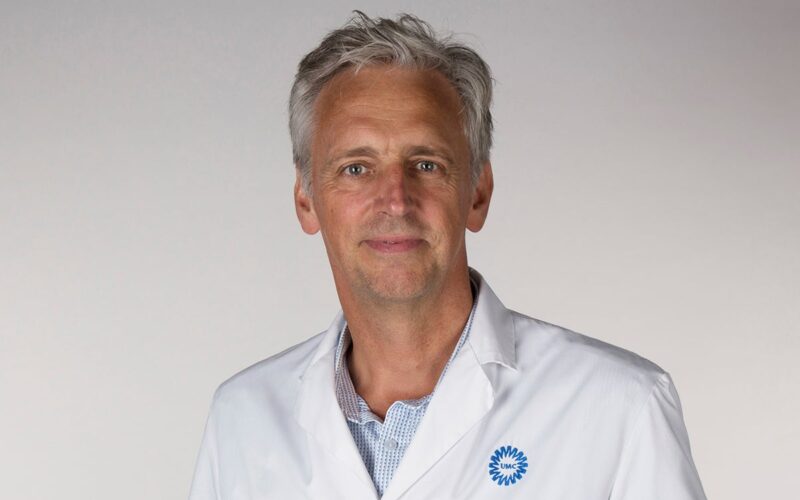Hereditary heart muscle diseases are fifty percent heritable. Therefore, if one of your parents, brother or sister has it, there is a significant chance that you have the same mutation in your DNA. Those who know this can get checked regularly to avoid serious consequences as much as possible. One in 250 people have a mistake in their DNA that can lead to an inherited heart or vascular disease.
Peter van Tintelen is professor of cardiogenetics at UMC Utrecht. He knows that only forty percent of first-degree family members of patients with heart muscle disease have DNA testing done for the mutation in the family. “So sixty percent don’t. That’s unfortunate. Because by checking people with this flaw in the DNA once every few years cardiologically, giving advice and treating if necessary, sudden cardiac death, for example, is often preventable. If the risk is high, it can be prevented with an ICD implantation. But a lot can also be done with lifestyle. Because if you have a certain error in your DNA, the known risk factors for cardiovascular disease are even more important. Not smoking, making sure your blood pressure is low and not being overweight significantly reduce the risk of serious consequences.”
Peter is researching why so many people don’t get their DNA tested and what it will take to change that. He is working with the Heart Foundation on this. “It seems that most who don’t get tested don’t do so for reasons of principle. Actually, most people seem to be open to DNA testing, but don’t get around to it because it’s not high enough on their priority list. ”
The follow-up question is what is needed to ensure that more people get tested. “That’s another thing we’re looking into. Now patients known to have heart muscle disease get a letter asking them to inform their family members as well. But maybe that’s not enough and we need to make follow-up calls or use digital communication.”
Another study Peter is focusing on is the influence of the environment on inherited heart muscle disease. He will do this together with Roel Vermeulen of UU. “One in 250 people has a mistake in their DNA that can lead to heart disease. But how it manifests itself varies enormously. It could be that the grandchild dies at age 20 while running, while mother at age 50 has no problems at all and grandpa in his eighties only has some arrhythmia. What makes it that this condition has much more serious consequences for some than for others? That’s what we want to know. Perhaps the environment plays a role.”
“The severity of heart disease is linked to the degree of environmental pollution over the years in certain regions. We can thus determine where people with heart muscle disease lived and to what extent harmful substances were present there. For example, did they live for years in an agricultural area where tulips were mostly grown and thus have relatively high exposure to agricultural toxins? Or did they live near an airport and suffer a lot of noise pollution? That too can affect your heart. With this study, we’re going to try to put that puzzle together.”
“If we know what factors play a role in the severity of heart muscle disease, we can anticipate that. You can then calculate the risk of serious consequences. Now everyone with this error in their DNA comes for a check-up once every three years. For people with a relatively low risk, perhaps once every five years is sufficient. Whereas you would want to see others every year, to start treatment in time if necessary.”
